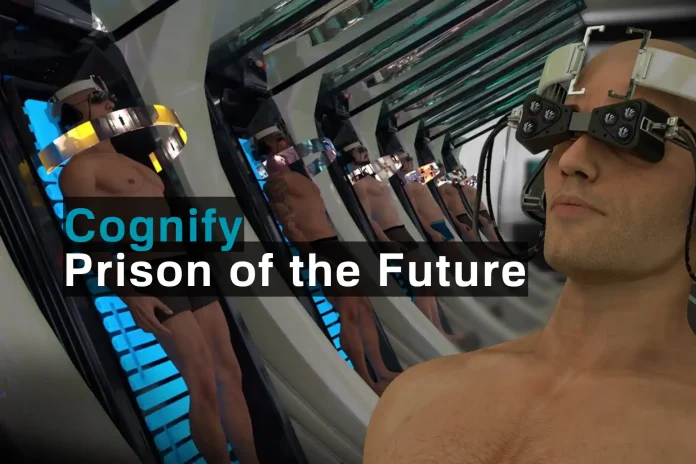Imagine a world where prison sentences are served in minutes, not years. Where criminals are rehabilitated through the power of artificial memories, not punishment. This is the concept behind Cognify prison of the future, a unique design that aims to change the criminal justice system.
What is Cognify Prison of the Future AI
Cognify AI offers a strange alternative to the traditional prisons. Instead of focusing on punishment, it prioritizes rehabilitation. Prisoners are given a choice: spend years locked away or undergo a fast-track rehabilitation program using AI-generated memories.
The fundamental innovation of Cognify’s technology is its capacity to directly implant personalized artificial memories into the brain. These recollections are customized to the particular crime committed and the mental state of the perpetrator. For violent criminals, this can entail putting oneself in the victim’s shoes to develop empathy and regret. One possible way to combat such crimes would be to model the long-term effects of the crime, like the suffering of the victim’s family or the pain the victim went through.
How does Prison in the Future Works?
A brain scan is the first step in the process to map the neural circuits. This brain map directs the Cognify device—a headset-like device—to target particular brain regions related to memory, emotions, and thinking. The type and strength of recollections are then modified according to the offense. The manufactured memories compress time, enabling the prisoner to undergo years’ worth of consequences in a matter of minutes.
The system monitors the prisoner’s neural responses in real-time, allowing for adjustments and personalization throughout the therapy session. New visuals, sensations, and AI-generated content can be introduced to optimize the rehabilitation process.
Effects of Cognify AI Prison
The goal is for the implanted memories to become ingrained in the prisoner’s memory permanently, just like their own experiences. This may result in long-lasting behavioral adjustments and a lower chance of repeating offenses. Furthermore, scientific study can be conducted using the data gathered from Cognify sessions, which will advance our knowledge of criminal behavior and help develop more successful crime prevention techniques.
Check! OpenAI New Search Engine Against Google?
Are there Any Benefits of AI Prison?
Cognify offers society a plethora of advantages. It might greatly reduce the cost of conventional prisons, freeing up money for other sectors like healthcare and education. Cognify has the potential to promote safer communities and a more productive workforce by expediting the rehabilitation of offenders.
Cognify also has uses outside of the criminal justice system. Patients with memory loss may benefit from using this technology to help them remember lost memories. Positive memories could be substituted with negative ones in order to treat PTSD.
Is Cognify Brain Prison System Ethically Appropriate?
Cognify is an intriguing concept, but there are a lot of ethical questions and technical challenges to be solved. There are concerns about potential psychological manipulation and free will when considering the option of altering someone’s memory. Furthermore, nothing is known about the long-term consequences and safety of these kinds of brain manipulations.
For now, Cognify prison of the future is just a notion. Significant developments in artificial intelligence and neuroscience will determine whether it can become a reality or not. But it also starts an important topic of discussion about how criminal justice will develop in the future and how technology may be used to help rather than simply punish.



